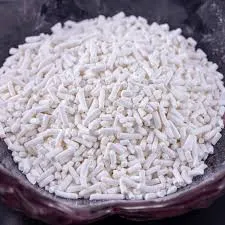
types of fertilizers
Types of Fertilizers A Comprehensive Overview
Fertilizers are essential components of modern agriculture, enabling farmers to enhance crop yield and improve soil health. They can be classified into several categories based on their origin, nutrient content, and application methods. Understanding the various types of fertilizers is crucial for optimizing their use and ensuring sustainable farming practices.
1. Inorganic Fertilizers
Inorganic fertilizers, also known as synthetic or chemical fertilizers, are manufactured through industrial processes. They are typically high in nutrient concentration and deliver essential elements directly to plants. The main types of inorganic fertilizers include
- Nitrogen Fertilizers These fertilizers provide nitrogen, a vital nutrient for plant growth, often delivered in the form of urea, ammonium nitrate, or calcium nitrate. They promote lush, green foliage and increased crop yields.
- Phosphorus Fertilizers Essential for root development and flowering, phosphorus fertilizers are usually derived from rock phosphate. Common forms include monoammonium phosphate (MAP) and diammonium phosphate (DAP).
- Potassium Fertilizers Potassium is critical for overall plant health and resistance to disease. Fertilizers such as potassium chloride and potassium sulfate are commonly used to supply this nutrient.
Inorganic fertilizers are popular due to their immediate effects on plant growth, but they can lead to soil degradation and environmental issues if misused.
2. Organic Fertilizers
Organic fertilizers are derived from natural sources, including plant and animal materials. They improve soil structure, enhance microbial activity, and provide a slow release of nutrients. The primary types of organic fertilizers include
- Compost Decomposed organic matter, compost enriches the soil with nutrients and improves its water retention capacity. It is an effective way to recycle kitchen scraps and yard waste.
types of fertilizers

- Manure Animal manure is rich in nutrients and can be used to enhance soil fertility. However, it should be well-composted to avoid pathogens and reduce the risk of nutrient runoff.
- Bone Meal A byproduct of the meat industry, bone meal is high in phosphorus and calcium, making it ideal for promoting root growth and flower development.
While organic fertilizers offer long-term benefits for soil health, they typically act slower than inorganic options, requiring more time to manifest visible effects
.3. Slow-Release Fertilizers
Slow-release fertilizers are formulated to release nutrients gradually over time, aligning nutrient availability with plant needs. These fertilizers can be either synthetic or organic and are ideal for reducing leaching and environmental impact. Examples include controlled-release polymer-coated fertilizers and organic options like chicken manure pellets.
4. Liquid Fertilizers
Liquid fertilizers, often referred to as foliar fertilizers, are applied directly to plant leaves or in irrigation systems. They provide quick nutrient availability and are useful for addressing specific deficiencies. Products such as fish emulsion, seaweed extract, and liquid nitrogen solutions fall under this category.
5. Specialty Fertilizers
Specialty fertilizers are designed to target specific crops or growing conditions. They often contain a tailored mix of nutrients or additives to enhance plant performance. Examples include fertilizer blends for hydroponics, fertilizers for acid-loving plants, and those enriched with micronutrients.
Conclusion
Understanding the various types of fertilizers is crucial for effective agronomy and sustainable farming practices. While inorganic fertilizers offer quick nutrient availability, organic options contribute to long-term soil health. Slow-release and liquid fertilizers provide additional flexibility, catering to specific agricultural needs. By selecting the appropriate type of fertilizer based on crop requirements and environmental considerations, farmers can enhance productivity while preserving the ecosystem. Thus, the choice of fertilizer must be made carefully, balancing the immediate benefits with the long-term impacts on soil health and the environment.
-
Pure Sodium Dichloroisocyanurate Dihydrate | Powerful DisinfectantNewsAug.29,2025
-
Industrial Chemicals: Quality & Purity for Every IndustryNewsAug.28,2025
-
Nitrile Rubber Honoring Strict Production StandardsNewsAug.22,2025
-
Aspartame Ingredients Honoring Food Safety ValuesNewsAug.22,2025
-
Fertilizer for Balanced Plant NutritionNewsAug.22,2025
-
Cyanide Gold Processing with High Purity AdditivesNewsAug.22,2025
-
Formic Acid in Textile Dyeing ApplicationsNewsAug.22,2025
Hebei Tenger Chemical Technology Co., Ltd. focuses on the chemical industry and is committed to the export service of chemical raw materials.
-

view more DiethanolisopropanolamineIn the ever-growing field of chemical solutions, diethanolisopropanolamine (DEIPA) stands out as a versatile and important compound. Due to its unique chemical structure and properties, DEIPA is of interest to various industries including construction, personal care, and agriculture. -

view more TriisopropanolamineTriisopropanolamine (TIPA) alkanol amine substance, is a kind of alcohol amine compound with amino and alcohol hydroxyl, and because of its molecules contains both amino and hydroxyl. -

view more Tetramethyl Thiuram DisulfideTetramethyl thiuram disulfide, also known as TMTD, is a white to light-yellow powder with a distinct sulfur-like odor. It is soluble in organic solvents such as benzene, acetone, and ethyl acetate, making it highly versatile for use in different formulations. TMTD is known for its excellent vulcanization acceleration properties, which makes it a key ingredient in the production of rubber products. Additionally, it acts as an effective fungicide and bactericide, making it valuable in agricultural applications. Its high purity and stability ensure consistent performance, making it a preferred choice for manufacturers across various industries.





